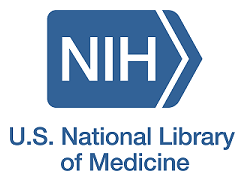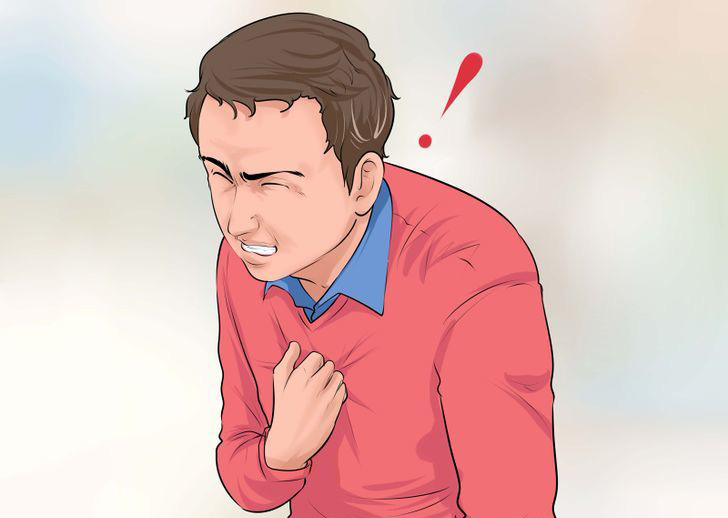

To Your Health: NLM update Transcript
Anger and heart attacks: 11/28/2016

Image: Courtesy of the Centers for Disease Control
Greetings from the National Library of Medicine and MedlinePlus.gov
Regards to all our listeners!
I'm Rob Logan, Ph.D., senior staff, U.S. National Library of Medicine (NLM).
Here is what's new this week in To Your Health - a consumer health oriented podcast from NLM - that helps you use MedlinePlus to follow up on weekly topics.
Adults who are angry and upset are more likely to have a heart attack after they exercise, suggests a large, recent, international study published in Circulation.
The study, based on 12,461 heart attack victims from 52 nations, found adults (who self-reported being angry or upset in the hour before they exercised) experienced twice the risk of heart attack symptoms within a post-exercise hour. If study participants were both angry and upset, the risk of a post-exercise, heart attack tripled within an hour - compared to those who were calmer before their work out.
The study's six authors also found very heavy exertion (during the hour prior to exercise) doubled the risk of heart attack symptoms (within the first post-exercise hour).
Interestingly, the study found similar increased risks among adults who self-reported stress, anger, being upset, or heavy exertion during the same time period the day before they began to exercise.
The findings also suggest exercising at night is associated with an increased risk of a heart attack (when preceded by anger, stress, or heavy exertion). The increased risk of a heart attack (among highly stressed adults) seems to occur especially between 6 pm and midnight.
The study's leader, Dr. Andrew Smyth of McMaster University in Canada, told the Associated Pressthe findings make biological sense. Smyth explained emotion, stress, and exertion raise blood pressure and heart rate, which changes the flow of blood in vessels and potentially reduces the heart's blood supply.
In acknowledging the study's unintended, paradoxical impact to discourage adult exercise, Smyth said (and we quote): 'from a practical perspective, there will be times when exposure to such extremes is unavoidable' (end of quote).
Smyth explained (and we quote): 'We continue to advise regular physical activity for all, including those who use exercise to relieve stress' (end of quote). Smyth counseled adults to stay within usual exercise routines especially when they are upset, angry, or experiencing unusual stress at home or at work.
While the study uses self-reported measures, the findings are based on a much higher number of international participants than previous research.
Meanwhile, the National Heart, Lung, and Blood Institute provides a guide to physical activity and your heart within the 'start here' section of MedlinePlus.gov's heart diseases prevention health topic page.
The American Heart Association, which publishes Circulation, provides tips to help you manage stress within the 'related issues' section of MedlinePlus.gov's heart diseases prevention health topic page.
MedlinePlus.gov's heart diseases prevention health topic page also provides links to the latest pertinent journal research articles, which are available in the 'journal articles' section. Links to relevant clinical trials that may be occurring in your area are available within the 'clinical trials' section. You can sign up to receive updates about heart disease prevention as they become available on MedlinePlus.gov.
To find MedlinePlus.gov's heart diseases prevention health topic page, please type 'heart disease prevention' in the search box on MedlinePlus.gov's home page, then, click on 'heart diseases-prevention (National Library of Medicine).' MedlinePlus.gov also has a health topic page devoted to heart diseases.
Before I go, this reminder... MedlinePlus.gov is authoritative. It's free. We do not accept advertising ... and it is written to help you.
To find MedlinePlus.gov, just type 'MedlinePlus.gov' in any web browser, such as Firefox, Safari, Chrome, or Explorer, on any platform.
We encourage you to use MedlinePlus and please recommend it to your friends. MedlinePlus is available in English and Spanish. Some medical information is available in 48 other languages.
Your comments about this or any of our podcasts are always welcome.
Please email the podcast staff anytime at: NLMDirector@nlm.nih.gov
A written transcript of recent podcasts is available by typing 'To your health' in the search box on MedlinePlus.gov's home page.
The National Library of Medicine is one of 27 institutes and centers within the National Institutes of Health. The National Institutes of Health is part of the U.S. Department of Health and Human Services.
A disclaimer — the information presented in this program should not replace the medical advice of your physician. You should not use this information to diagnose or treat any disease without first consulting with your physician or other health care provider.
It was nice to be with you. Please join us here next week and here's to your health!


































No hay comentarios:
Publicar un comentario